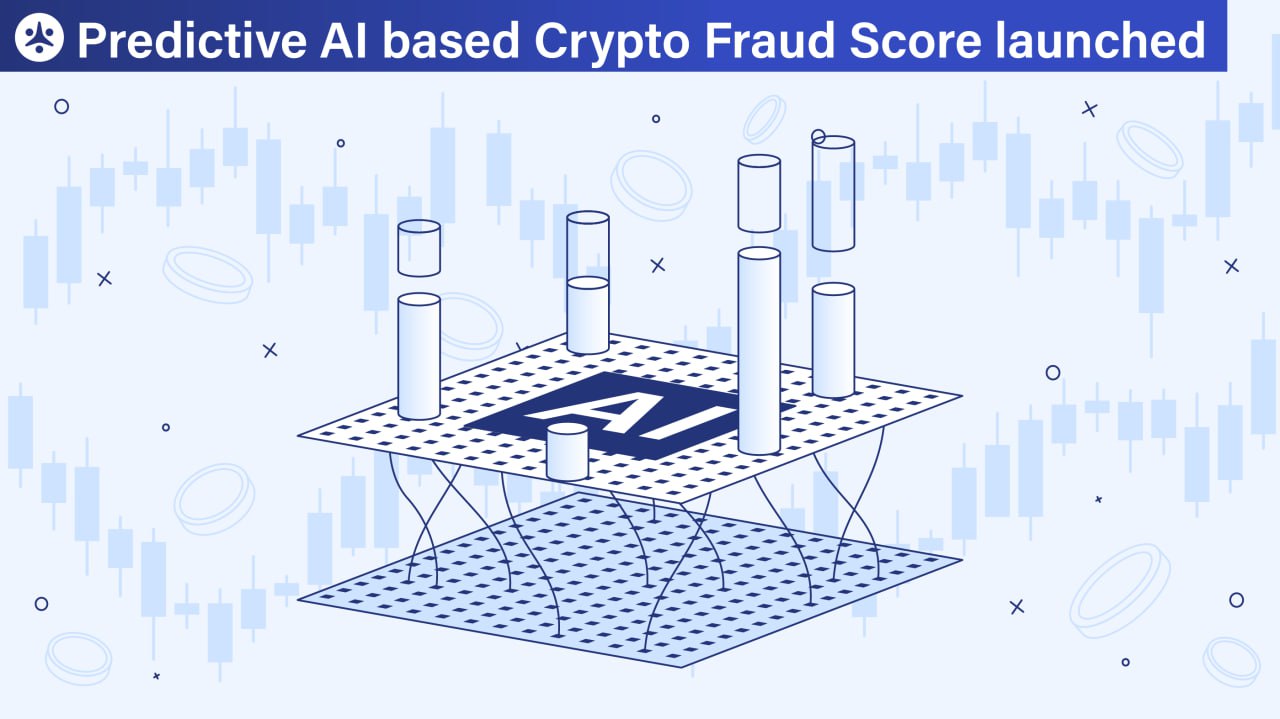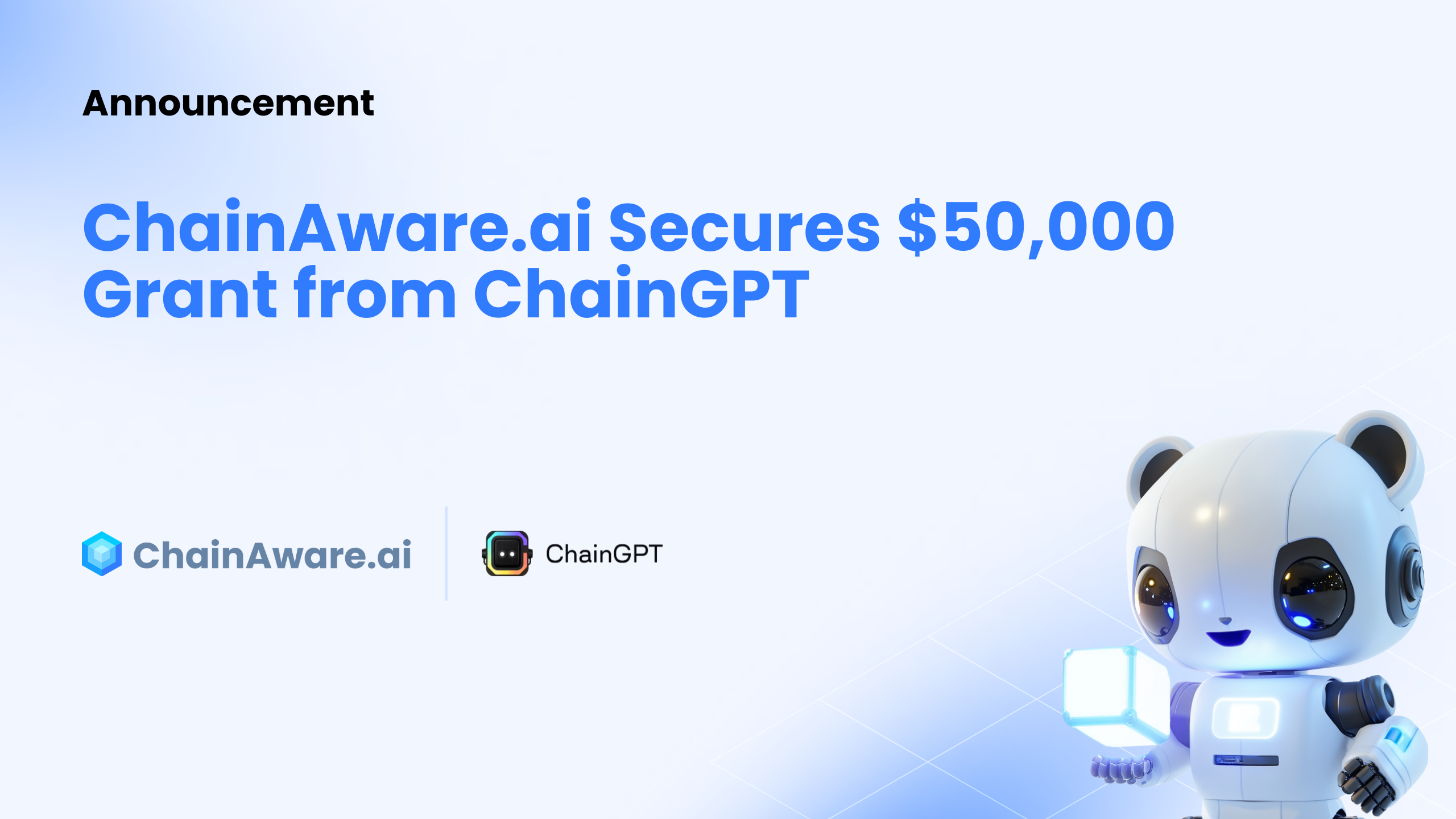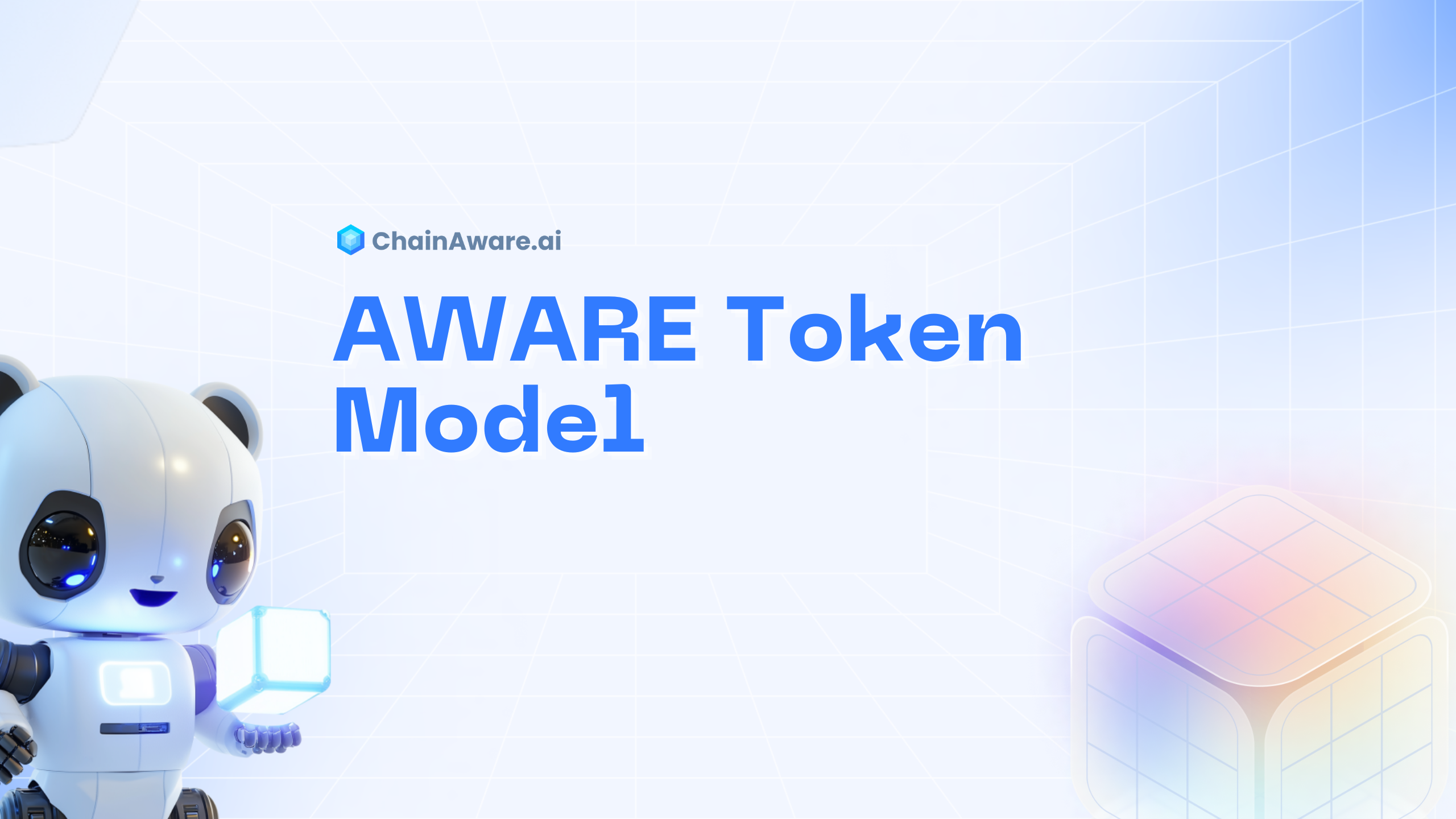We are excited to announce the launch of a Predictive AI-based Crypto Fraud Detection! This AI algorithm calculates the fraud probability based only on the blockchain addresses and history. The current predictive forecasting power of the fraud addresses is 98%.
AI-based predictive Crypto Fraud Score service is available via https://chainaware.ai.
- Users can use the web for free on Ethereum, Binance Smart Chain, and Polygon.
- Businesses can integrate the AI-API via the https://swagger.chainaware.ai in the subscription mode
How to use Crypto Fraud Detection?
User Interface allows you to:
- Calculating Crypto Fraud Score for any address
- Calculating your own Crypto Fraud Score and sharing this with your partners
Calculating the score for any address
You must enter the address and the blockchain – at the moment, Ethereum, Binance Smart Chain, or Polygon – and start then the calculation.
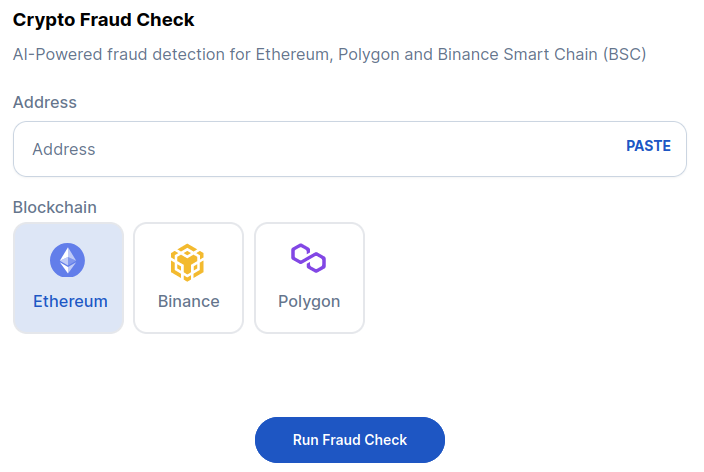
For example, you could calculate the Crypto Fraud Score of any address before submitting transactions on the blockchain.
- If the Crypto Fraud Score returns a fraud result, you should not interact with the respective counterparty.
- If the address is new, i.e., there are too few interaction patterns, then the Crypto Fraud Score cannot calculate the probabilities. In this case, you should ask for another address with more transaction history from your counterparty, especially if your counterparty claims to participate longer in the blockchain economy.
- If the address is a contract address, then at the moment, we cannot calculate the predictive fraud score for them.
- Otherwise, you will see the Crypto Fraud Score of the given address in your browser.
Here is an example of one fraud address:
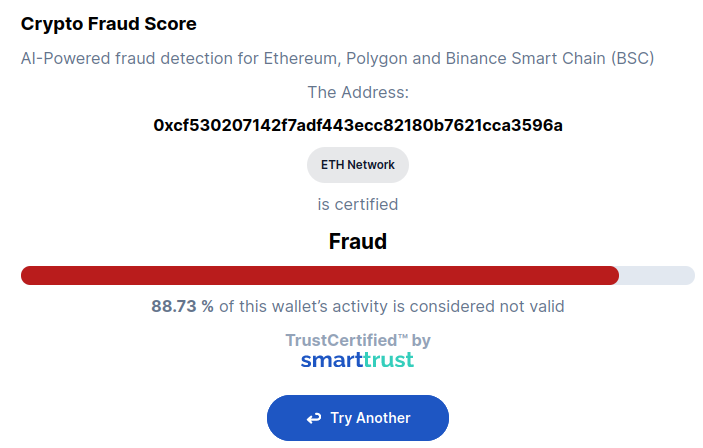
Here is an example of how good addresses look like:
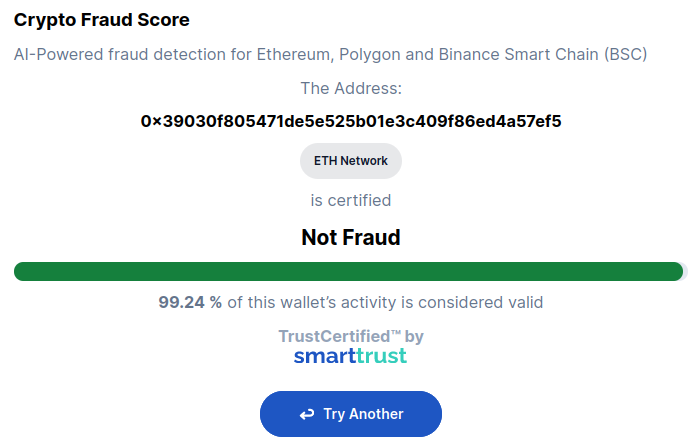
Calculating the score for your addresses and sharing it with others
Additionally, you can calculate your Crypto Fraud Score and share this with your partners. Your partners can click the link to see your predictive Crypto Fraud Score. You can share only your score; you cannot share the score of other addresses.
How to use the AI-based Crypto Fraud Detection API?
Crypto Fraud Score API could be used, for example, by CeFi or DeFi businesses, for fraud identification. CeFi and DeFi platforms could call this API for any address they interact with. If the address looks like a fraud, it will be better not to interact with them.
Crypto Fraud Score service is offered via https://swagger.chainaware.ai/
You can do a small number of calls for free; however, if you need more API calls, you must purchase a subscription. Many calculations are in the backend, and we must pay for the required computing power.
How can we predict the future?
Crypto has many scammers trying to scam the non-suspecting public. And many hackers are looking for easy money. All of them will leave traces in the blockchain transaction history.
Every scam is different, and there are unlimited potential scams. But scammers use specific interaction patterns and leave their transactions history in the blockchain. The amount of these interaction patterns is limited, while the number of potential scams is unlimited.
Our artificial intelligence modules identify fraud interaction patterns and forecast the future behaviors of the addresses based on past interaction patterns.
Our current predictive power is 98%. How can we say that we have 98% forecasting power?
That’s how — there is a public database — https://cryptoscamdb.org. It’s what we call a forensics database, where the scam and fraud addresses are stored. For example, https://etherscan.io and https://app.mycrypto.com wallets use this forensics database to identify scams.
Our algorithm does not use the addresses listed in https://cryptoscamdb.org for the algorithm training. However, our AI algorithm recognizes 98% of the addresses in the CryptoScamDB database as fraud addresses.
That’s why we say we have 98% forecasting power.
Forensic Crypto Analytics versus AI-based Crypto Analytics
Forensic analytics works as follows:
- There are databases that tell whether an address was involved in a scam.
- And there are systems that measure the distance in “hops” from the scam or Tornado or other suspicious addresses
Hence it’s called forensic analytics — it can only state the facts after the event.
The issue is that the scammers or hackers are not using the old addresses — they use the new ones, which are not yet recorded in the forensic databases.
Therefore we need predictive analytics — it’s about analyzing the interaction patterns and predicting the possibility that these interaction patterns will result in the scam in the future.
Compliance requirements
Virtual Asset Service Provider regulations mandate the providers to:
- do the Crypto AML
- do the Crypto Transactions Monitoring
While many tools are available for the AML, only minimal and costly tools are available for crypto transaction monitoring.
So, most of the CeFi service providers focus mainly on the AML by saying that we verify all participants in the transactions, and hence the transaction monitoring requirements are also fulfilled.
However, transaction monitoring is more than AML checks. It requires identifying fraudulent transactions before executing the transactions. Regulatory requirements are that fraudulent transactions should not be executed at all.
That’s what we offer with the Crypto Fraud Score — if your counterparty wallets do not have a good score, you should better not transact with them.
Free Service to Crypto Community
We offer the Crypto Fraud Score user interface for free. The main reasons for this are:
- Forensic analysis tools are more for the detective work
- Forensic analysis tools are very costly tools
- The compliance requirements for the transactions monitoring
But why did we decide this?
Because it’s about the blockchain economy — the economy is based on contracts between the parties and contract parties trusting each other. But how can one trust the economy if there are no free means to validate the trust of your counterparties?
That’s why we launched Crypto Fraud Score – Don’t trust. Verify.
Additional Info
- SmartCredit.io integrates AI-based Crypto Fraud Detection and Big Data Analytics
- Forensic Crypto Analytics versus AI-based Crypto Analytics
- Learn how to use AI for Crypto KYC, Crypto AML and Crypto Transaction Monitoring
- Website: https://chainaware.ai
- Twitter: https://twitter.com/CryptoTrust_ai
